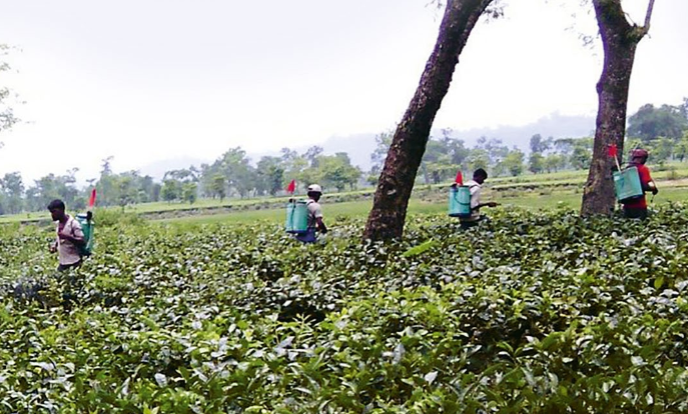India, Indonesia and Guatemala block the listing of a highly hazardous Paraquat formulation and deprive other countries of their right to information
Geneva, 18. May 2015

At the conclusion of the negotiations in Geneva over the listing of chemicals under the Rotterdam Convention, Pesticide Action Network (PAN), IUF and the Berne Declaration expresses its deep concern at the failure, once again, of the country delegates, to agree to list a formulation of the lethal herbicide paraquat under the Rotterdam convention. At the beginning of the deliberations the UN Special Rapporteur on the implications for human rights of the environmentally sound management and disposal of hazardous substances and wastes, reminded delegates that “It is both legally and morally unjustifiable for countries to continue to obstruct the listing of asbestos and paraquat under the Rotterdam Convention.” Despite this India and Guatemala, with strong support from the pesticide industry, opposed the listing, and so once again other countries are deprived of their right to information on trade in paraquat across their borders.
Two years ago at COP6, there was agreed by consensus that the paraquat notification fulfills the requirements to be listed in Annex 3 of the Convention. And consequentially the overwhelming majority of the 150 Parties to the Convention supported the listing of paraquat (20%). But the listing was blocked by Guatemala and India. During the 2013 COP, it was discovered that an industry representative deceived delegates by wrongfully speaking on behalf of the Guatemalan government.
Burkina Faso proposed listing this formulation because of human poisonings from the use of the Syngenta product, Gramoxone Super (Paraquat 20%). Listing under the Rotterdam Convention is not a ban, but instead requires exporters to give prior notification and to obtain consent from the importing countries.
Paul Windinpside SAVADOGO, Director General of the Ministry of Environment and Sustainable Development of Burkina Faso said “This was a missed opportunity to include paraquat dichloride (20%) in Annex III of the RC. We regret that a few countries blocked the listing and prevented the majority from being able to take measures to protect human health, especially of farmers and agricultural workers, and the environment. Burkina Faso is a developing country and information sharing is crucial for us.“
“The listing of this formulation of paraquat under the Rotterdam Convention is long overdue. Paraquat has caused, and continues to cause, many severe health effects and deaths amongst agricultural workers in a number of countries. But aggressive lobbying by the pesticide industry, particularly the Swiss company Syngenta, has resulted in many countries finding themselves unable to ban it,” said Sarojeni Rengam of Pesticide Action Network Asia Pacific.
“Paraquat is the worst of herbicides and has no antidote. Farmers and agricultural workers worldwide suffer from skin burns and blindness as a result of using this pesticide, which is so poisonous that a teaspoonful can kill a human being. Workers die when their backpack sprayer malfunctions and they get covered in the herbicide. It is outrageous that the listing continues to be derailed by governments with clear conflicts of interest” added Sue Longley from IUF.
C. Jayakumar of Pesticide Action Network India added, “A recent report from PAN, the Berne Declaration and International Union of Food and Allied Workers on information collected from six states in India shows that paraquat is used under high-risk conditions. These include the common but very dangerous practice of selling paraquat in plastic bags, and workers failing to wear personal protective equipment.”
Scientific experts of the Chemical Review Committee agreed that Paraquat (20%) and pesticides trichlorfon and fenthion, and chemical, asbestos chrysotile fulfill the requirements of the Convention for listing. The blocking of their listing by a few countries shows a fundamental problem regarding the implementation and effectiveness of the Rotterdam Convention. With the creation of a working group to develop solutions to countries blocking the listing of chemicals and pesticides, the COP has started a process which will hopefully allow the Parties to exchange information on these and other hazardous chemicals in the future.
For more information:
Francois Meienberg, Berne Declaration Tel: +41 79 796 76 12 food@evb.ch

